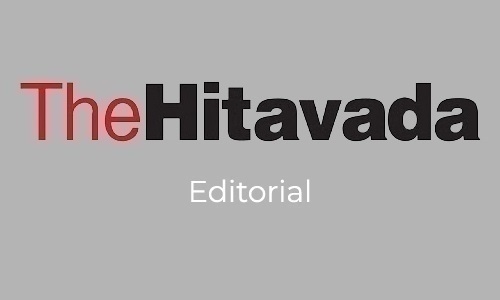PAK’S DILEMMA
| Date :02-Jun-2023 |

TO SOME extent at least, Pakistan has a genuine grievance against the International Monetary Fund (IMF). For, probably in its anxiety to extend aid to a well-governed country, the IMF has asked Pakistan first to settle its internal political disputes. That may be rather stretching things too much, but that has nonetheless angered Pakistani rulers no end. Mrs. Aisha Ghaus Pasha, State Minister for Finance and Revenue, has blasted IMF for ‘intervening’ in Pakistan’s internal matters. When the country is on the brink of a total collapse, such reaction is not unexpected, though. The main concern of the IMF before giving Pakistan a bail-out package is to ensure that the country’s internal political squabbles will not interfere with the management of the funds so that the aid does not go waste. That may be the reason why the IMF has been taking its own sweet time to issue the bail-out package Pakistan needs so badly and so urgently. The IMF has reasons to believe that Pakistan has sunk to such low levels only because of its mismanagement of internal affairs, thanks to its squabbling leadership group and the political instability. It may be recalled that Pakistan has not had one single Prime Minister ever to complete his or her full term.
Should such a condition become an impediment in the issue of IMF bail-out package? Will that not be taken as an interference in Pakistan’s internal matters? In the current context, Pakistan is asking these questions, justified as it is at least to some extent. No matter these details, the factual situation is that Pakistan Prime Minister Mr. Shehbaz Sharif’s meetings with the IMF a few months ago do not seem to have generated enough confidence in the IMF about the country’s ability to handle its domestic affairs properly. Meanwhile, ousted Prime Minister Mr. Imran Khan has continued to spell trouble for the ruling party, making hard-to-digest predictions about Pakistan’s dismemberment into three-four parts, for example. When politics becomes so heated up and there appears no sign for an early settlement of internal issues, then any world organisation -- IMF in this case -- would think a thousand times before lending massive bail-out funds to the country. Pakistan is suffering from such an uncertainty.
Anybody who has ventured to indulge in thinking about Pakistan’s condition is often seen landing at only one point of philosophy of a nation’s purpose. Each observer has arrived at only one point unmistakably that Pakistan came to such a pass because its very foundation did not have any philosophical solidity -- in sharp contrast to India in the neighbourhood. Pakistan’s purpose of existence is defined by its comparison with India in every which the way. In sharp contrast, India has an autonomous existence, spurred only by deep self-interest, and having no concern about what others in the neighbourhood are doing to themselves.
Currently, however, the IMF is still agonising over whether to offer any help to Pakistan or not. For, its previous experience with Pakistan has not been healthy, in the sense Pakistan always messed up and mixed up its priorities whenever any world body came forward to help. Reappropriation of funds for unstated purposes has been Pakistan’s wont -- which the IMF happens to know fully well. Hence its current reluctance to extend help to Pakistan. Because Pakistan has been rather a rogue State, the IMF is worried if its assistance would be mis-handled. Hence the direction that Pakistan should first rectify its internal processes and systems before any assistance could be afforded to Islamabad. The situation is certainly ticklish and no one actually has a satisfactory solution to the issue which the International Monetary Fund has raised.